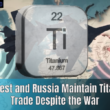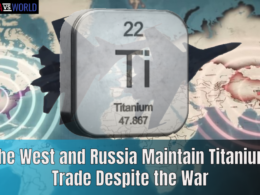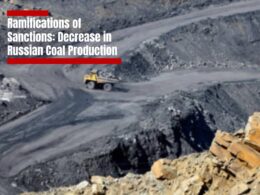As the third year of Russia’s full-scale war against Ukraine unfolds, it has become increasingly evident that Western economic sanctions often fail to achieve their intended goals. Despite official restrictions, millions of tons of Russian oil continue to flow into the European Union, filling the budget of the aggressor state. Russia uses this revenue to fund military operations, purchase weapons, and support its defense sector.
Russia’s economy heavily relies on oil exports, which account for a significant portion of the state budget. These funds sustain the Kremlin’s military machine. In 2024, Russia’s military budget amounted to approximately $112 billion, with Bloomberg reporting that this figure is set to increase to $142 billion in 2025. These expenditures include the development of new weaponry, military maintenance, and the expansion of Moscow’s aggressive policies.
Despite the sanctions imposed following the full-scale invasion of Ukraine, Russian oil continues to find its way to European markets. According to the Financial Times, during the first year of the war, the EU paid Russia around €140 billion for oil and gas, with approximately €80 billion attributed to oil alone.
Russia has adeptly adapted to Western sanctions by using intermediaries and alternative routes. Oil is often transported through neutral or Kremlin-friendly countries such as Turkey, China, India, or the UAE. Under the guise of mixed origins, this crude oil reaches EU markets, effectively bypassing formal sanctions.
For its part, Europe, while imposing restrictions on Russian oil imports and implementing price caps, has not been able to eliminate this issue. Many European companies continue to work with intermediaries, often turning a blind eye to the oil’s origins. The revenues from oil sales allow Russia not only to sustain its war effort but also to modernize its military capabilities. This presents additional challenges for Ukraine, which faces daily missile attacks and other forms of aggression. Moreover, financing the war through oil trade raises questions about the effectiveness of Western sanction policies. If the EU genuinely aims to halt aggression, it must find ways to block all revenue streams that Russia generates from energy exports.
Russian oil remains a critical source of income for funding the war against Ukraine. Despite sanctions, Europe remains a major consumer of this resource, enabling the Kremlin to keep its economy afloat and prolong its aggression. Only decisive international action can halt this flow and deprive Russia of the financial means to continue its war.








